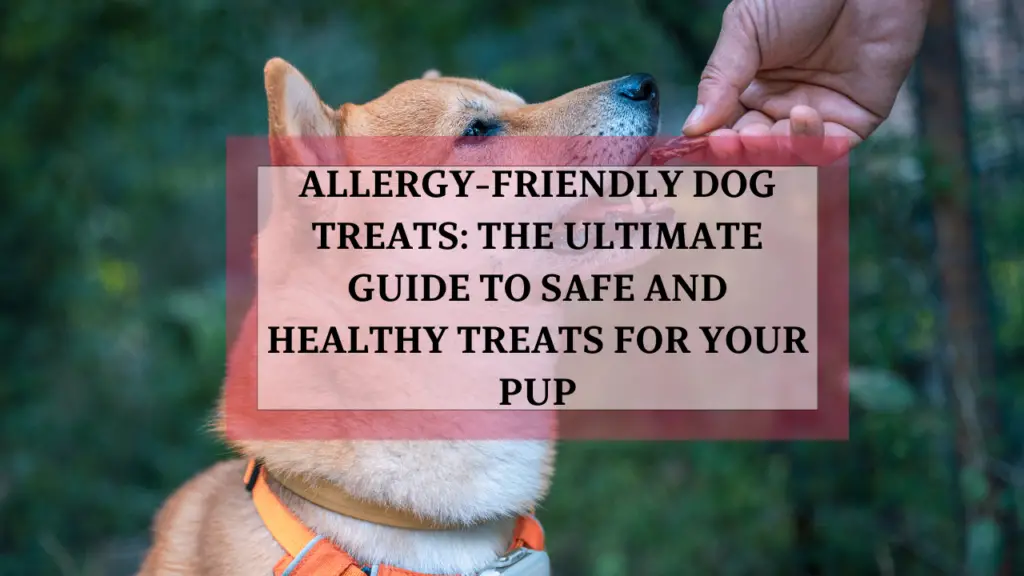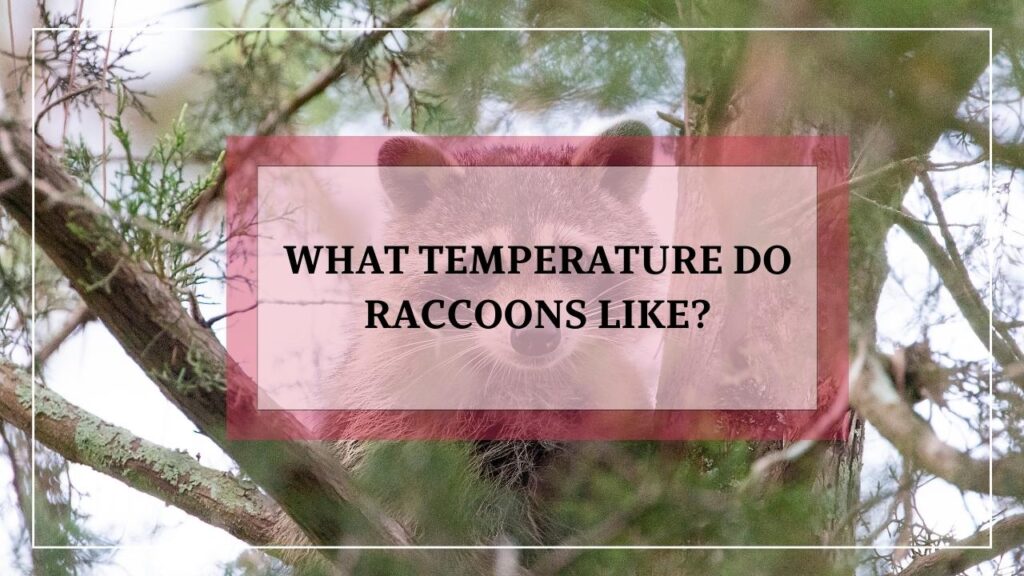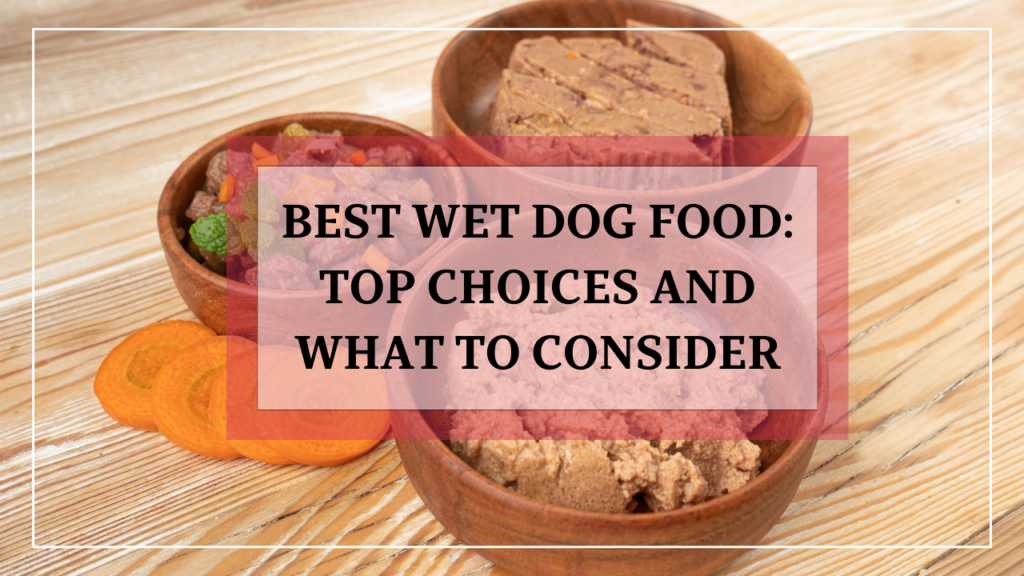When it comes to spoiling your pup, dog treats are often a go-to option. However, for dogs with food allergies, choosing the right treat can be a challenge. This is where allergy-friendly dog treats come into play.
What Are Allergy-Friendly Dog Treats?
Allergy-friendly dog treats are specially formulated to cater to dogs with food sensitivities or allergies. They avoid common allergens such as wheat, chicken, beef, dairy, and soy—ingredients that can cause discomfort or health issues in dogs with food sensitivities.
Choosing the right allergy-friendly treat is not just about preventing allergies, it’s also about enhancing your dog’s overall health. Dogs with allergies may suffer from a variety of symptoms, including itching, digestive upset, ear infections, and even behavioral changes. By giving your dog the right treats, you’re not just avoiding allergic reactions, you’re also contributing to their overall well-being.
Why Choose Allergy-Friendly Treats for Your Dog?
Dogs, just like humans, can develop allergies. Food allergies are becoming increasingly common in our canine companions. In fact, according to a study published by the American College of Veterinary Dermatology, up to 20% of dogs suffer from some type of food sensitivity.
Switching to allergy-friendly dog treats can have a huge impact on your dog’s health, especially if they show signs of food allergies. These signs can manifest as skin irritation, digestive upset, or ear infections. Giving your dog the right treats helps you manage these issues more effectively and ensures that your dog feels their best.
Common Dog Food Allergies and Their Symptoms
Before we dive into finding the perfect allergy-friendly dog treats, it’s important to understand the types of food allergies that commonly affect dogs, and how these allergies manifest.
What Are the Most Common Food Allergies in Dogs?
Some of the most common allergens in dog food include:
- Chicken: The most common protein allergen for dogs.
- Beef: Another common protein that may cause allergic reactions.
- Wheat: A common carbohydrate source that can cause skin irritation and digestive problems.
- Soy: Often used in commercial dog food as a protein source, but it can be problematic for sensitive dogs.
- Dairy: Dogs can develop lactose intolerance, which leads to upset stomachs or diarrhea.
- Corn: A common filler in many commercial dog foods that can cause food sensitivities.
Knowing what your dog is allergic to can help you select the right treats and avoid common allergens.
What Are the Symptoms of Food Allergies in Dogs?
Allergic reactions in dogs can take many forms. Here are some of the most common symptoms to look out for:
- Itchy skin: Often around the paws, ears, and face. This can lead to excessive scratching, licking, and biting.
- Digestive upset: Vomiting, diarrhea, or changes in stool consistency.
- Ear infections: Recurring ear infections, often accompanied by a bad odor or redness.
- Behavioral changes: Dogs with allergies may become irritable or anxious due to the discomfort.
- Respiratory issues: Wheezing, coughing, or nasal discharge may sometimes be linked to food allergies.
How Can You Tell if Your Dog Has a Food Allergy?
It can sometimes be tricky to pinpoint food allergies because the symptoms often overlap with other health conditions. The best way to determine if your dog has a food allergy is to work with your veterinarian. Elimination diets are often used, where specific ingredients are removed from your dog’s diet, and then slowly reintroduced to identify the culprit.
How to Choose the Best Allergy-Friendly Dog Treats
Once you know what to avoid, choosing the best allergy-friendly dog treats becomes a lot easier. Here are the factors to consider when picking the right treats for your dog:
What Ingredients to Avoid in Dog Treats for Allergies?
When shopping for allergy-friendly dog treats, you want to make sure the treats exclude common allergens such as:
- By-products and fillers: These are often found in low-quality treats and may include corn, soy, wheat, and artificial additives.
- Artificial colors and flavors: These can trigger sensitivities or allergies in dogs.
- Gluten: Dogs with grain allergies may also react to gluten, which is often found in wheat-based treats.
What to Look for in Allergy-Friendly Dog Treats?
For a treat to be considered allergy-friendly, look for:
- Limited ingredients: Fewer ingredients mean fewer chances for allergens to sneak in.
- Single-protein treats: Many dogs are allergic to more than one protein, so look for treats with a single, novel protein (like venison, duck, or lamb) to reduce risk.
- Natural ingredients: High-quality treats made from natural ingredients are often the safest.
- Hypoallergenic certification: Some brands certify that their treats are hypoallergenic, meaning they are specifically formulated to reduce allergic reactions.
Are There Any Certifications to Look For?
Look for treats with certifications such as:
- Certified organic: Ensures that no harmful pesticides or chemicals are used in production.
- Non-GMO: Good for dogs with sensitivities to genetically modified organisms.
- Grain-free: Important for dogs with grain or gluten sensitivities.
Incorporating these tips will help you find the best allergy-friendly dog treats for your furry friend.



